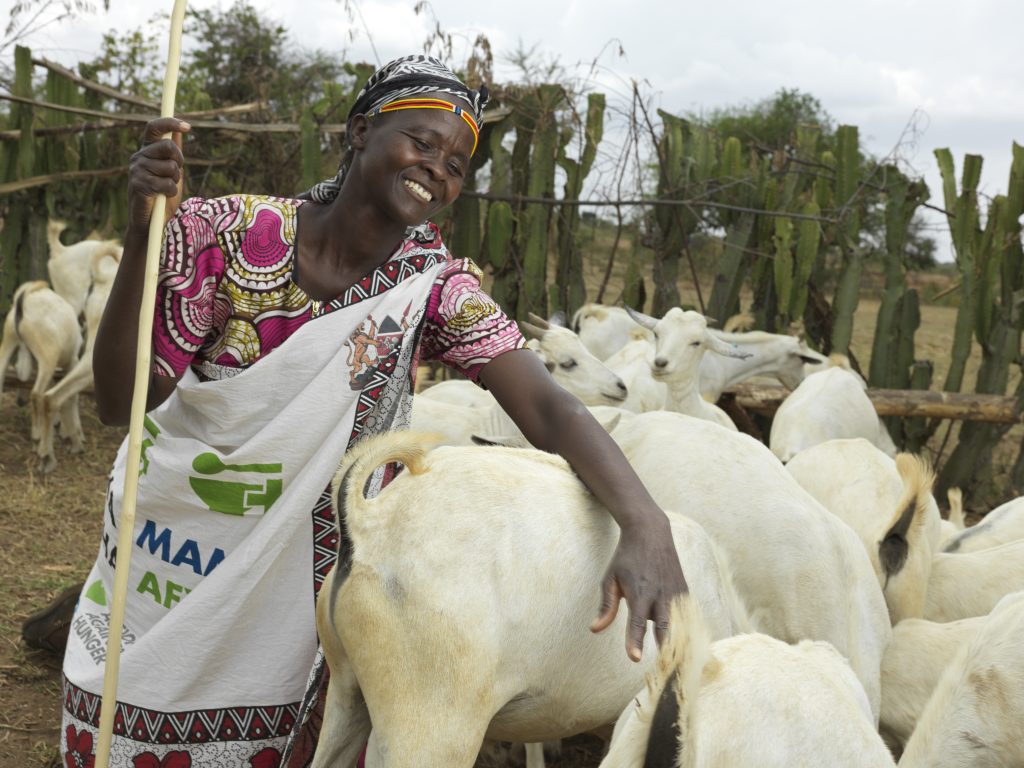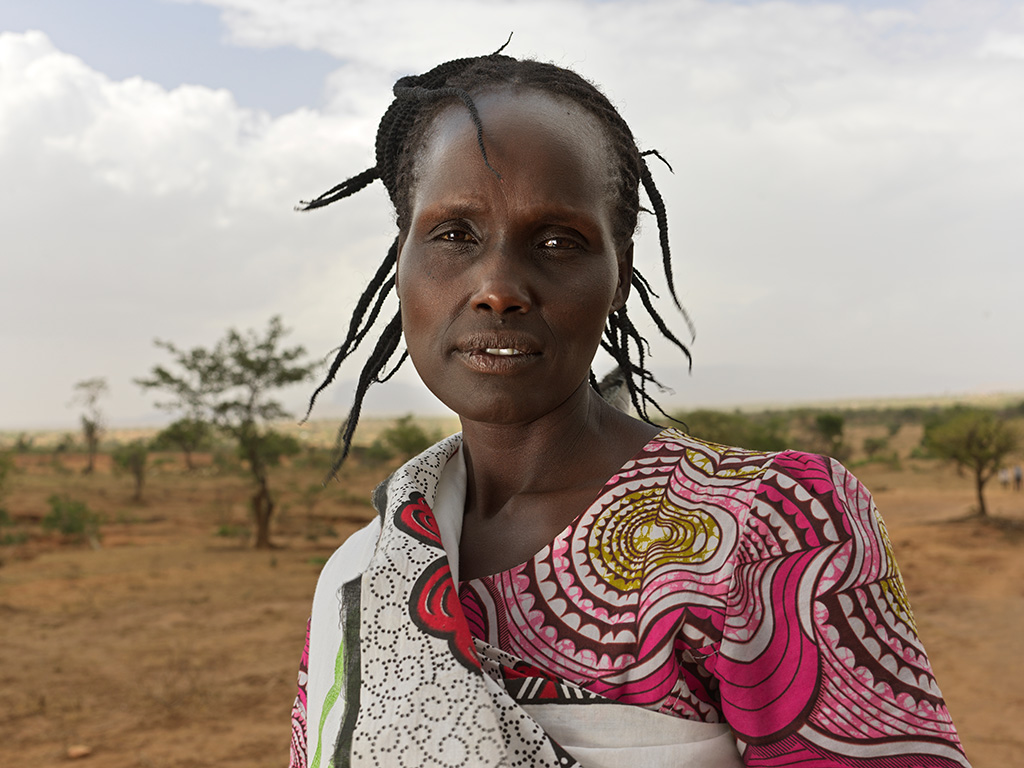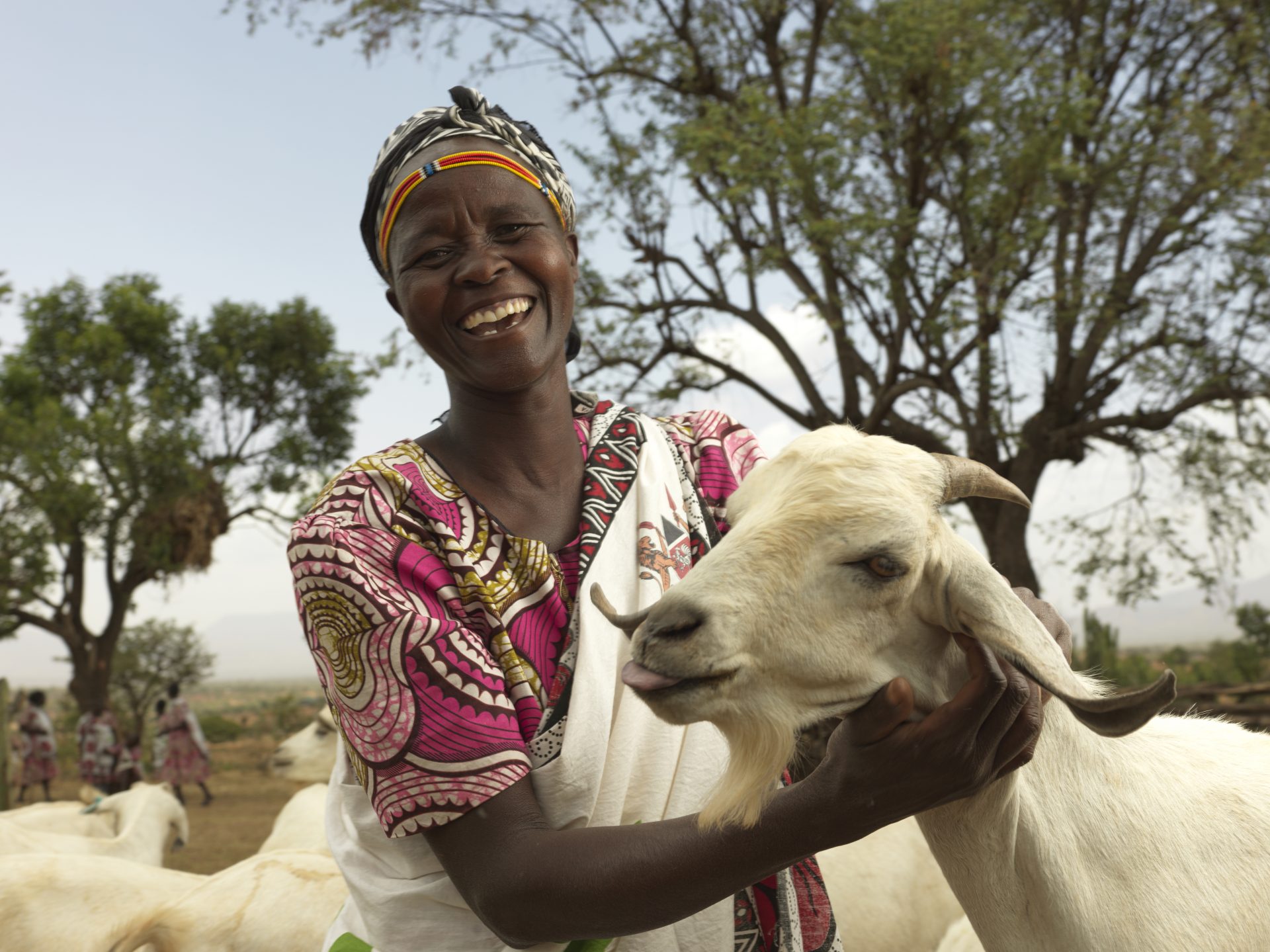In Kenya, more than 800,000 children are malnourished because they don’t have enough nutritious food.
Women are expected to feed their families as one of their daily household duties. Putting food on the table has always been tough here. But the climate crisis and unpredictable weather are making it impossible for many.
How Action Against Hunger is helping
Unable to grow her own food or afford fruit and vegetables from the market, Tereza, couldn’t provide enough healthy food for her children – despite her best efforts.
“Mothers in the community could see their daughters and sons looked too thin or too small for their age,” she says. “Some wouldn’t be talking or walking when it was time for them to do so.”
This was a constant source of anxiety for Tereza and other women living in the community.
When drought hit the region, this situation became even worse. Women lost what little crops and livestock they had, and as a result their children’s lives were at an even bigger risk.

Tereza tends to her kitchen garden. © Action Against Hunger/ Peter Caton.
But thanks to our support, things have started to change in Tereza’s community in Kenya – one of the hungriest countries worldwide. Where there used to be land ravaged by drought, there are now patches of lush green covering the edge of the local river valley.
These abundant kitchen gardens – where households can grow their own vegetables, fruit and herbs – contain row upon row of spinach, kale, cow peas and many other leafy greens.
“Action Against Hunger brought people who knew about agriculture to train us on how to raise seed beds and plant vegetables using different techniques. I’ve seen a big change.”
Women in the community are now committed to change, and women from surrounding villages are learning from them. Tereza is also teaching her own children how to farm vegetables, passing on valuable knowledge that’s reshaping her community’s future.
New business opportunities
To help women make a living and improve their families’ health, we’re supporting mother-to-mother groups so they can make an income of their own.
Rosalyn is now the proud owner of a flock of goats. Her Galla goats are a hardy bunch that can tolerate the increasingly punishing heat and tough climate.

Rosalyn from Kenya with the goats that Action Against Hunger helped her to buy. © Action Against Hunger/ Peter Caton.
“Before, we didn’t know much about growing crops or how to start a business. We requested some support so we could buy goats,” Rosalyn tells us.
“I love keeping goats a lot! First, I can get milk. Second, when I sell these goats in the market, they fetch higher prices compared to other goats. Third, the manure from the goats helps me with my garden. So, I don’t need to spend more money on buying fertilisers.”
The whole community’s lives have now transformed thanks to the amazing work of Rosalyn and her friends. Children can now drink nutritious goats’ milk. And the profits from selling the goats at the market are putting girls through school. None of the women had an education, but the group’s support is encouraging them to dream big and work hard to make their dreams reality.
“Our future plan is to buy some land to expand the goat business. And we have plans in the future of getting land in the town where we can maybe build a guest house using the money we get from the goats,” says Rosalyn.
“Action Against Hunger came and made us stronger through knowledge.”
By supporting women to grow food for their families, we’re stopping life-threatening hunger in its tracks. And by enabling them to share their new knowledge and skills with other mums through mother-to-mother groups, we’re making change happen on a much bigger scale.
Building a brighter future
As well as teaching women about drought-resistant crops and water-efficient farming techniques, we’ve also repaired the only borehole in the community and powered it with solar energy. Now, it pumps water to the kitchen garden so vegetables in the kitchen garden can grow.

“In the past we didn’t have this kitchen garden. But when Action Against Hunger came and restored that borehole it gave us a lot of motivation, Through that, our mother-to-mother support group set itself the challenge that each one of its members should have at least one kitchen garden,” says leader Rosina.
“I want to say thank you to Action Against Hunger. If I compare how we were living before to how we are now, I can say our future is bright. This knowledge has really changed our lives.”


